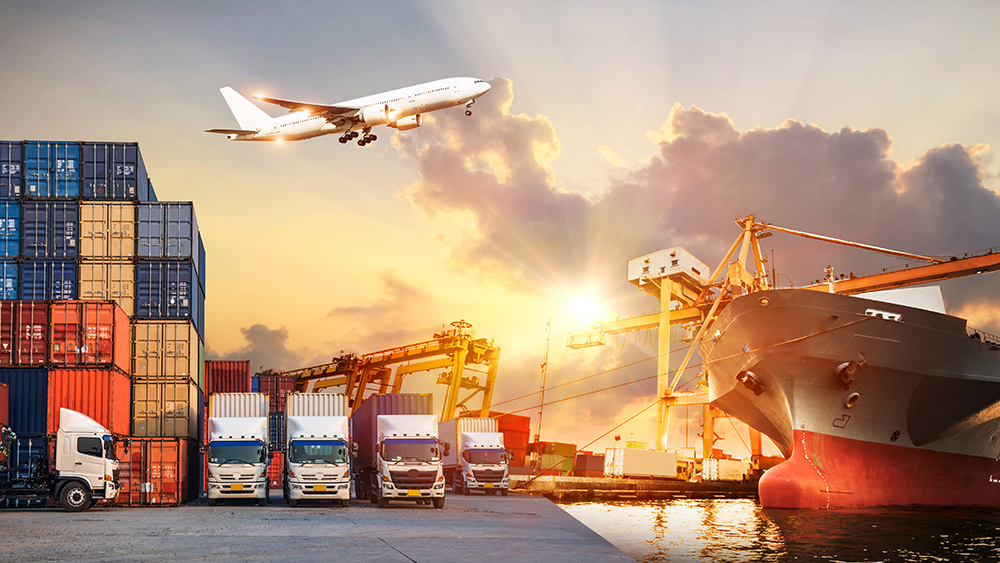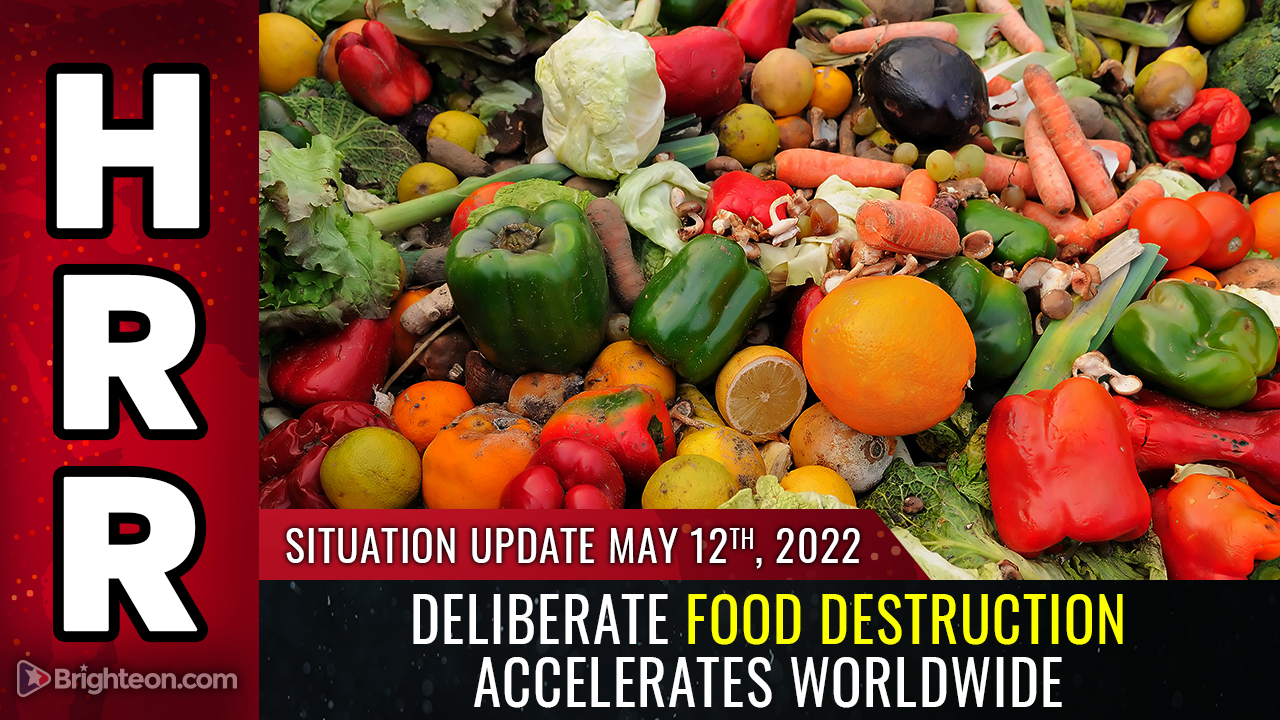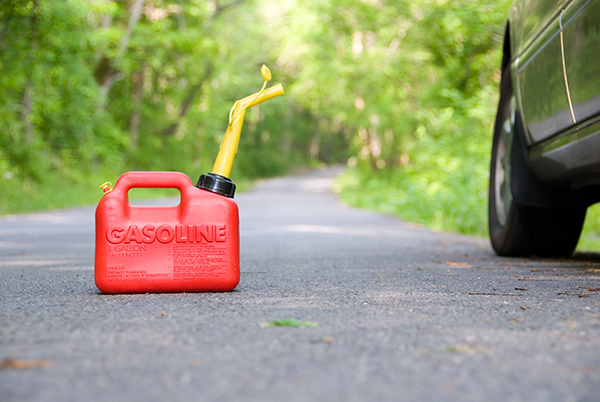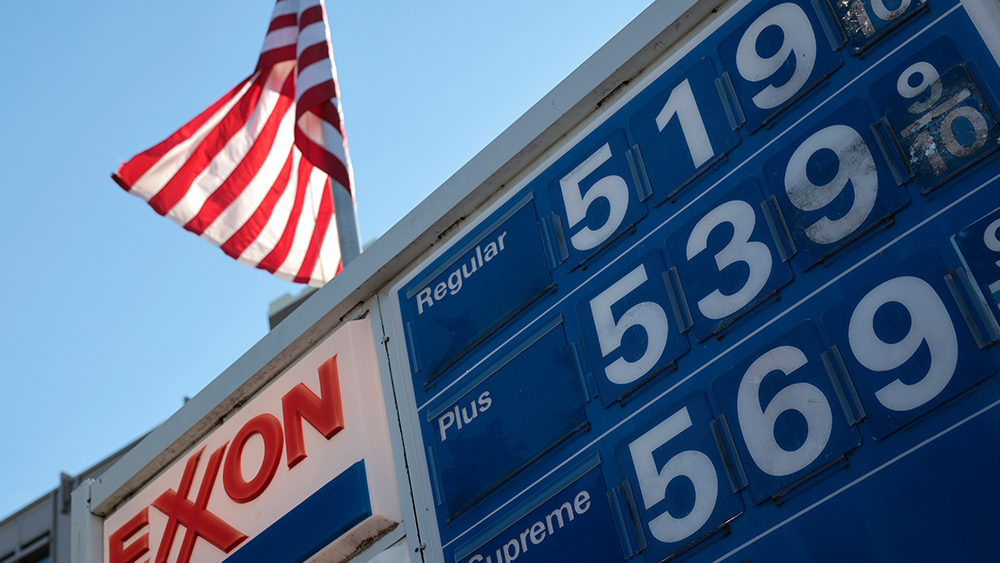Widespread diesel shortages to affect everything in America and around the world
05/16/2022 / By Kevin Hughes
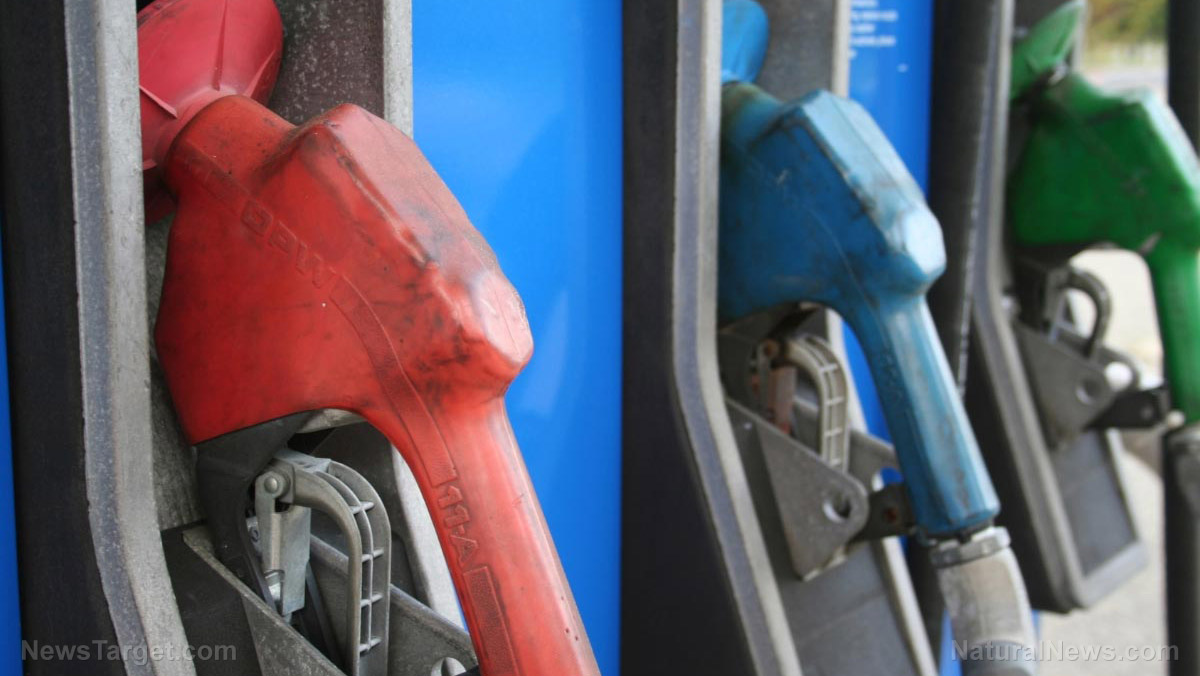
Widespread diesel shortages will affect everything in America from the food supply to manufacturing and services.
Refiners in the United States are now receiving an average of over $150 per barrel from the sale of gasoline and diesel at wholesale prices, while paying only around $100 to purchase crude. It suggests a margin of around $50 per barrel based on the assumption that a refinery produces two barrels of gasoline and one barrel of diesel from three barrels of crude.
Worldwide stocks of refined petroleum products have dropped to critically low levels as refineries failed to keep up with rising demand – especially for the diesel-like fuels used in manufacturing and freight transportation. Diesel prices have hit new all-time highs due to the shortage. (Related: Price of diesel reaches all-time high – what will become of food production and transport?)
“Diesel supply is short all over the world due to sanctions against Russian oil and much higher post-pandemic demand as supply restocking takes place. Certain areas of the country have seen shortages already and we expect that to continue. Supplies at New York Harbor – a hub for diesel distribution – are at a 30-year low,” said Peter Meyer of S&P Global Commodity Insights.
“As such, the East Coast of the U.S. has been hit especially hard, resulting in diesel prices above $6.00 per gallon in that area, well over the equivalent of $250 per barrel. Exports of U.S. gasoline, diesel, and jet fuel to Latin America are also very high, adding to the tightness.”
High demand worldwide for middle distillates
There is high demand worldwide for products like diesel, heating oil and jet fuel, which are called “middle distillates” because they are made from the middle of the boiling range when oil is turned into products. The U.S. currently exports more than one million barrels of distillates each day to countries such as Mexico, Brazil and Chile.
The margin is meant to be a sample for an “average” refinery and is a total amount from which refiners have to pay for labor, electricity, gas, hydrogen, catalysts, pipeline transport and the cost of capital.
Net margins are limited and refinery costs have been increasing fast as a result of large-scale inflation tearing through the economy following the Wuhan coronavirus (COVID-19) pandemic.
In spite of that, gross margins have more than doubled from $20 at the end of 2021. This means refiners have a solid financial incentive to optimize crude processing and fuel production.
Gross margins are currently higher for producing diesel (around $60 per barrel) than for gasoline ($45 per barrel).
U.S. distillate fuel oil stocks are 31 million barrels (23 percent) below the pre-pandemic five-year average in contrast with a deficit of only six million barrels (three percent) in gasoline.
The squeeze on fuel inventories and refinery capacity is further increasing already high prices for crude brought by sanctions on Russia and output restraint by OPEC+ and U.S. shale producers.
The reopening of international passenger aviation as quarantine restrictions are lifted is narrowing the fuel market even further considering jet fuel is quite similar to diesel and gas oil.
After the margins and taxes of the distributors and retailers are included, the average price at the pump paid by motorists has gone up to $236 per barrel for diesel and $186 per barrel for gasoline. The refining margins and fuel prices are all for the U.S., but the identical deficiency of refining capacity and fuel inventories is also increasing diesel and gasoline prices in Europe.
Refiners can hike fuel production by delaying dispensable maintenance and running refineries all out in the beginning of autumn. They can also adjust the output mix by changing from maximum gasoline to maximum diesel mode in subsequent processing units.
But any hike in diesel production is still not likely to counter the reduction of inventories and restore them to pre-pandemic levels. Meaning, prices will continue to increase until worldwide consumption is reduced.
Follow FuelSupply.news for more stories about widespread diesel shortages.
Watch the video below to know how skyrocketing diesel prices will affect Americans.
This video is from the High Hopes channel on Brighteon.com.
More related stories:
Supply chain on the brink of COLLAPSE as diesel price surge hits trucking industry hard.
Why every American should care that diesel prices are surging across the country.
Sources include:
Submit a correction >>
Tagged Under:
chaos, collapse, crisis, crude, diesel, energy supply, fuel rationing, fuel supply, gasoline, inflation, jet fuel, middle distillates, oil supply, panic, petroleum products, power, power grid, products, refinery, scarcity, shortage, supply chain
This article may contain statements that reflect the opinion of the author
RECENT NEWS & ARTICLES
SupplyChainWarning.com is a fact-based public education website published by SupplyChainWarning.com Features, LLC.
All content copyright © 2021 by SupplyChainWarning.com Features, LLC.
Contact Us with Tips or Corrections
All trademarks, registered trademarks and servicemarks mentioned on this site are the property of their respective owners.






